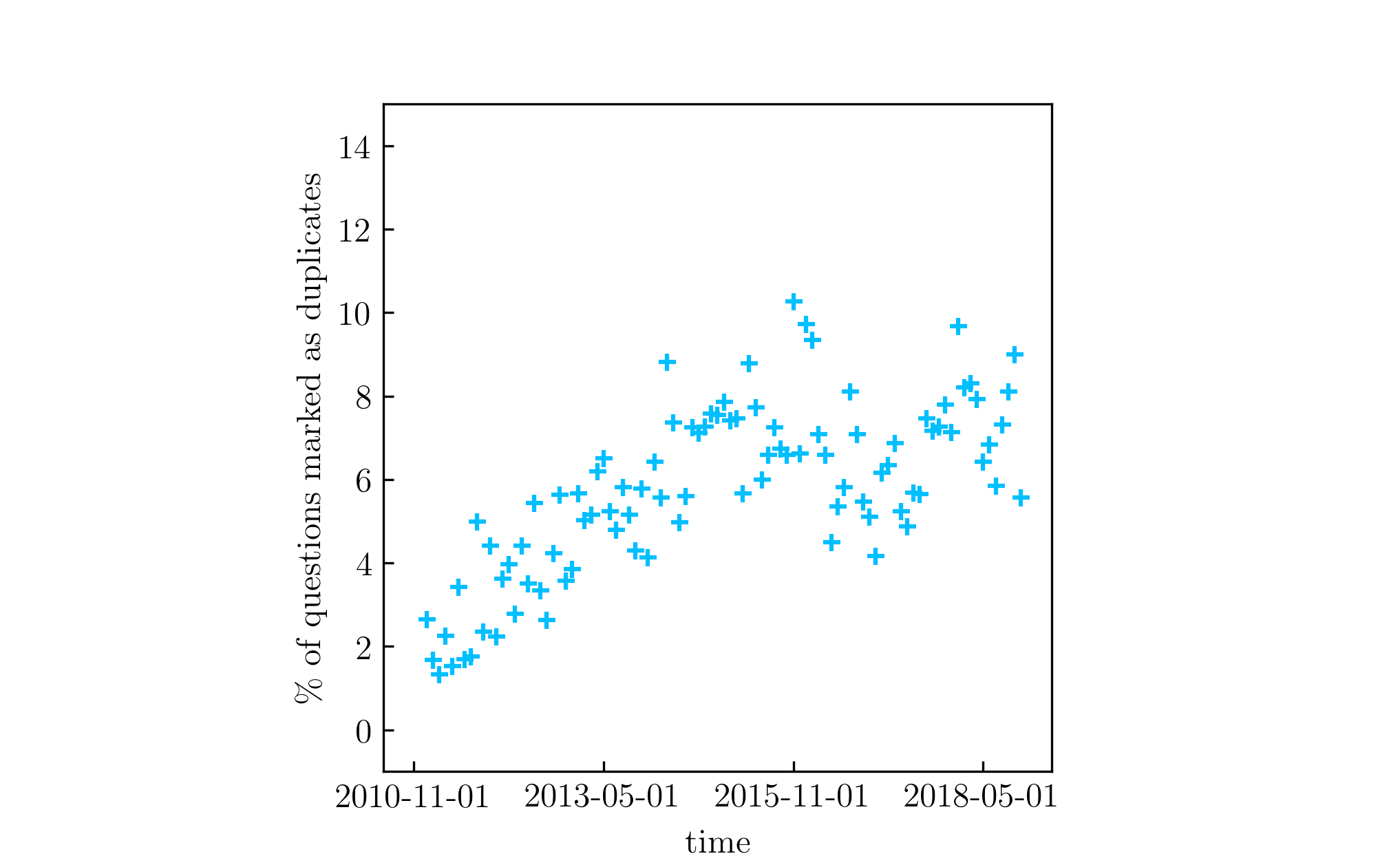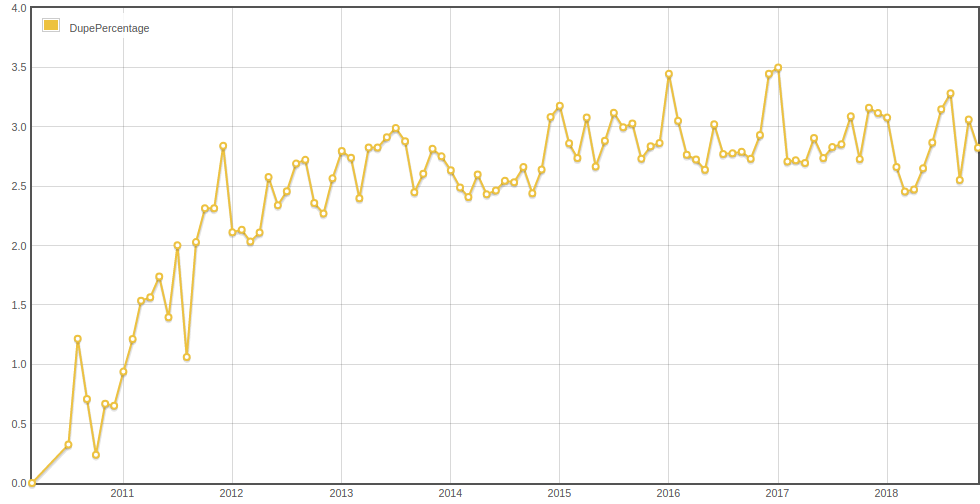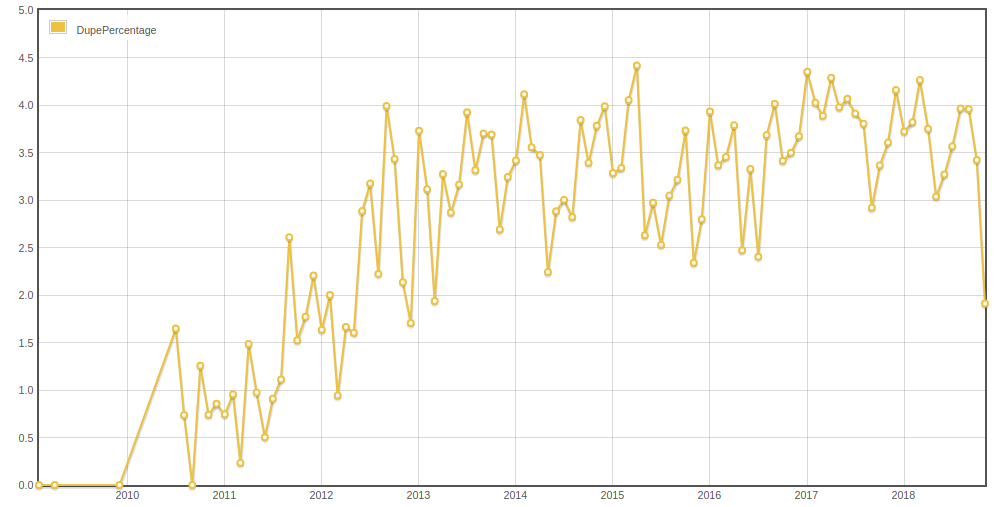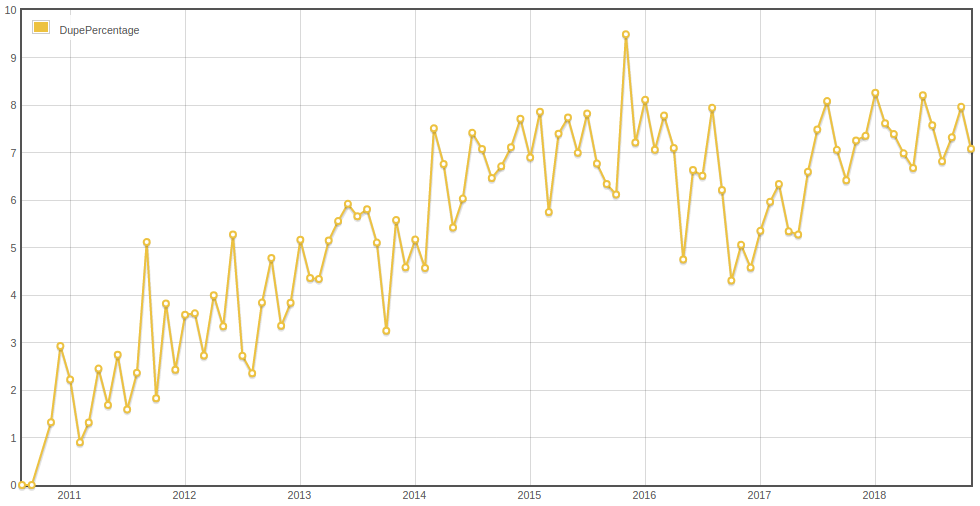I feel concerned about a thought that I had recently.
I am wondering if the current policy about duplicate questions may become problematic in the (very) long term for the health of Stack Exchange.
Let me explain: as far as I understand, questions are marked duplicate when they have already been asked on the website at some point in the past. Thus, I can't help but consider the possibility that, at some point in a far future, almost every single question would have been already answered on Stack Exchange and then marked as duplicate.
Then, what would be the difference between Wikipedia and Stack Exchange, except for completeness?
How would we be able to exchange our knowledge if 99% of questions are legitimately marked as duplicate?
Eventually, this website would just end up being a massive database of Q/A, with virtually no activity. On one hand, that would be great for readers, but on the other hand, users who love to challenge themselves, learn and share their expertise may lose interest as the activity slows down to zero.
What do we want for the future of Stack Exchange? What do you suggest? Am I taking this way too far?
EDIT: Using Chair's contribution in the comments, I produced a graph that shows the evolution over time of the percentage of questions marked as duplicates:
The data, obtained via this query covers the statistics of the website between august 2010 and november 2018. Between 2010 and 2015 the proportion of duplicates increases steeply, however something strange happens around 2016-2017 and then it is hard to tell if the curve is starting to increase again or stabilizing around a constant value of $7\%$.
It will be interesting to see how this curve behave in the future.




